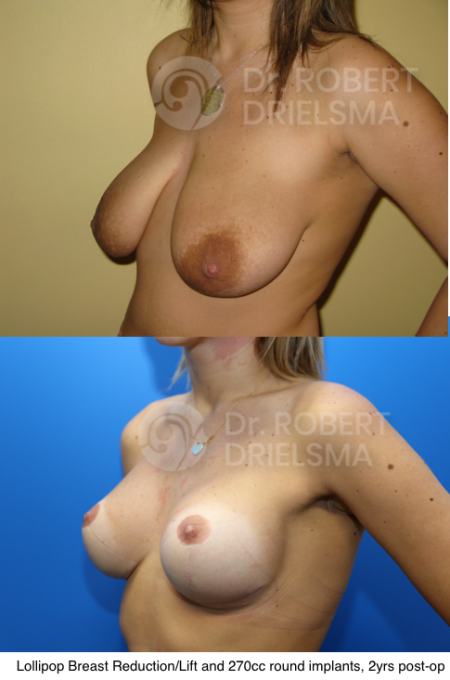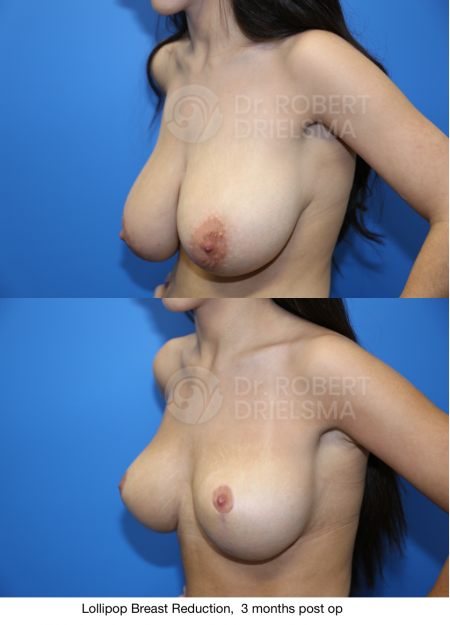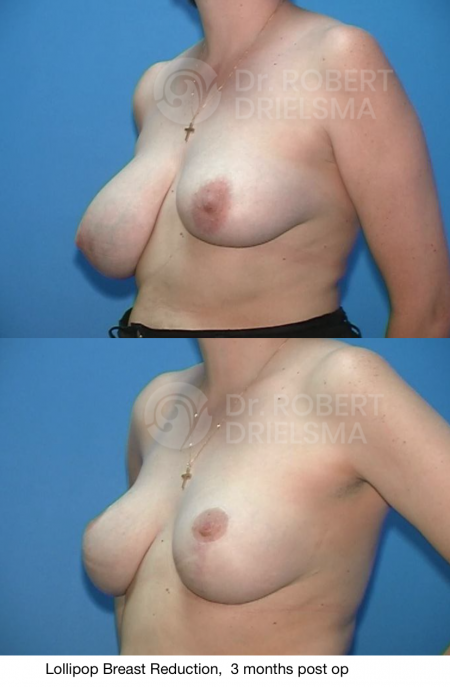 Breast reduction is a plastic surgery procedure. As such, breast reduction is not major surgery. Major surgery involves operations on vital organs within the head, chest, abdominal or pelvic areas.
Breast reduction is a plastic surgery procedure. As such, breast reduction is not major surgery. Major surgery involves operations on vital organs within the head, chest, abdominal or pelvic areas.
Plastic surgery procedures are minor or elective surgeries that focus on superficial enhancements to the body. This means they are not life-threatening procedures.
However, any surgical or invasive procedure carries risks. As a result, it is important that you seek out a qualified, specialist plastic surgeon for your breast reduction procedure.
What is a Breast Reduction?
Also known as reduction mammoplasty, breast reduction is a surgical procedure to reduce the size of overly large breasts. Large breasts can also cause health and emotional problems for some women. They can also cause physical pain and discomfort.
What does Breast Reduction Do?
A breast reduction procedure aims to remove excess fat, glandular tissue and skin to achieve a proportional breast size.
Is Breast Reduction Right for Me?
A breast reduction procedure is an extremely individualised procedure and may not be suitable for everyone. Your surgeon will assess your condition and general health. From there they will plan a treatment suited to you.
 Before deciding on Breast Reduction surgery, keep in mind:
Before deciding on Breast Reduction surgery, keep in mind:
- Smoking increases your risk of complications. It is important you quit smoking if you plan to have a surgical procedure, including breast reduction
- Specialist surgeons recommend waiting until breast development, child birth, and breastfeeding have stopped before undertaking breast reduction surgery
- Changes in your beasts during pregnancy, or significant weight loss or weight gain can alter the outcomes of previous breast reduction surgery
- Breast reduction may affect your ability to breastfeed. It is important to discuss with your surgeon if you plan to breastfeed in the future
Breast reduction may be a good option if you:
- Are physically healthy
- Have realistic expectations
- Are bothered by overly large breasts
- Have skin irritation beneath the breast crease
- Experience back, neck and/or shoulder pain caused by the weight of your breasts
- Have regular indentations from bra straps that support large breasts
- Suffer from enlarged areolas caused by stretched skin or your nipples rest below the breast crease when unsupported
Breast reduction may also be a good option if your breasts:
- Are fully developed
- Hang low
- Limit your physical activity
- Have stretched skin
It is important to know that the shape and size of your breasts before surgery will influence your surgical procedure and outcome.
Does Breast Reduction Require Anaesthesia?
Breast reduction procedures should always be done under general anaesthesia. Awake or twilight anaesthetics only use local anaesthesia. As a result this carries a great many risks. Your surgeon and anaesthetist will work with you to discuss any medications you are taking and any allergies you might have.
What Do I Need to Do Before Breast Reduction Surgery?
Your specialist plastic surgeon will ask you to provide a complete medical history, including any health issues you may have, any medications you are taking or have taken, and any allergies you may have.
We may advise you to stop taking certain medicines, including non-steroidal anti-inflammatories, aspirin, and medications containing aspirin. You may also be asked to stop any naturopathic remedies like garlic, ginkgo, ginseng and St john’s Wort as these can affect clotting and your anaesthetic. It is important you tell your surgeon everything you are taking, including any antibiotics.
It is also important that you prepare a recovery area at home. This can include extra pillows, ice packs, a telephone in easy reach, and a thermometer. You will also need to arrange for someone to drive you to and from hospital, and to stay with you for at least 24 hours after surgery.
Finally, always ensure you follow your surgeon’s instructions to the letter.
What Should I Do After Breast Reduction Surgery?
During the recovery and healing, you may experience pain, bruising, numbness and/or swelling. This is normal and your surgeon will prescribe pain relief as needed. Further, if you have any problems or concerns, be sure to tell your surgeon or patient coordinator immediately.
After surgery, you will also need to wear elastic dressings or surgical bras to provide support.
What Does Breast Reduction Cost?
Cost is also an important element in plastic surgery, including breast reduction procedures. Prices for individual surgeries can also vary widely between surgeons. Factors that influence the cost include:
- The surgeon’s experience
- The type of procedure
- Hospital or surgical facility costs
- Anaesthetist and anaesthesia fees
- Medical tests
- Medications
- Post-surgical garments
If you are considering a breast reduction procedure, contact Dr Drielsma today. As a specialist plastic surgeon, Dr Drielsma has extensive experience in the specialist techniques required for breast reduction surgery and specialises in the “lollipop” vertical minimal scarring technique.
